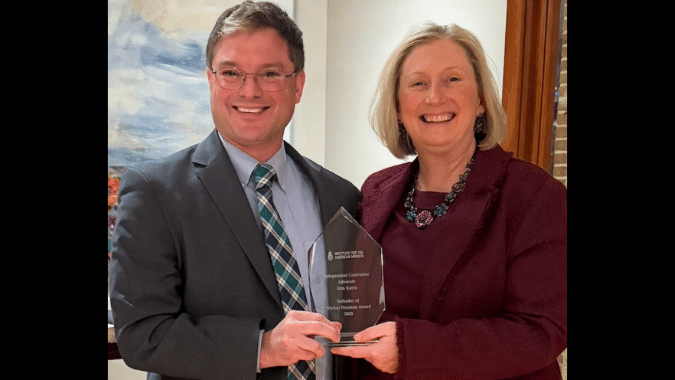NJBIA told legislators on Monday that New Jersey can boost the success of its Pathways to Career Opportunities initiative by expanding tuition assistance to include learners who need noncredit training courses at county colleges to begin working in well-paying careers.
In testimony before a special legislative hearing on higher education and the workforce, NJBIA Vice President of Government Affairs Althea D. Ford and NJBIA Director of Economic Policy Research Kyle Sullender said the tuition assistance programs that now help students seeking two-year or four-year academic degrees could be a model for workforce training programs.
“The current financial assistance model sends an unintended message that there is a specific type of education worthy of state investment,” Sullender and Ford said in their written testimony. “Stakeholders should re-evaluate this position and prioritize investments in the education of learners who are seeking the degree and/or credential necessary to enter in-demand fields of industry.”
NJBIA strongly supports the state’s continued financial investment in Tuition Aid Grants (TAG) Equal Opportunity Fund (EOF) tuition assistance and Community College Opportunity Grants (CCOG) for those seeking associate or bachelor’s degrees, but learners who are taking noncredit courses that equip them to begin working in a skilled trade need tuition assistance as well.
“We know that New Jersey, whether it’s through TAG, EOF or CCOG, invests in its learners,” Ford told the legislative panel. “We strongly support the continued financial investment in TAG, EOF and CCOG and we think there’s an opportunity for the state to model that support for learners who are going through credential and noncredit programs as well.”
Sullender emphasized how the Pathways to Career Opportunities initiative, a partnership formed by NJBIA, the New Jersey Council of County Colleges (NJCCC) and other stakeholders, is working to build a more highly skilled workforce by better aligning students’ coursework, training, and credentials with the skills that rapidly evolving industries require.
Statistics show that there are 268,000 open positions in the state, and many of those are in critical industries such as manufacturing and healthcare, Sullender said. Some of this is related to the lack of skilled workers to replace an aging workforce that is retiring in these industries.
“What the Pathways program is doing is allowing us to bring all of these stakeholders to the table beforehand, bring industry together with our higher education institutions to discuss what skills and credentials are actually necessary to be successful in those industries and to begin contributing to New Jersey’s economy right away,” Sullender said.
However, financial barriers exist for learners regardless of the type of academic degree or noncredit credential they seek, Ford noted. This is why it is important that tuition assistance is not limited to only those who seek traditional college degrees.
“We believe the State can do more to augment its investment in learners by creating additional financial assistance opportunities for learners completing credential or non-credit programs which equip them with a trade or other credential with direct access to gainful employment,” Ford and Sullender said in their written testimony.




